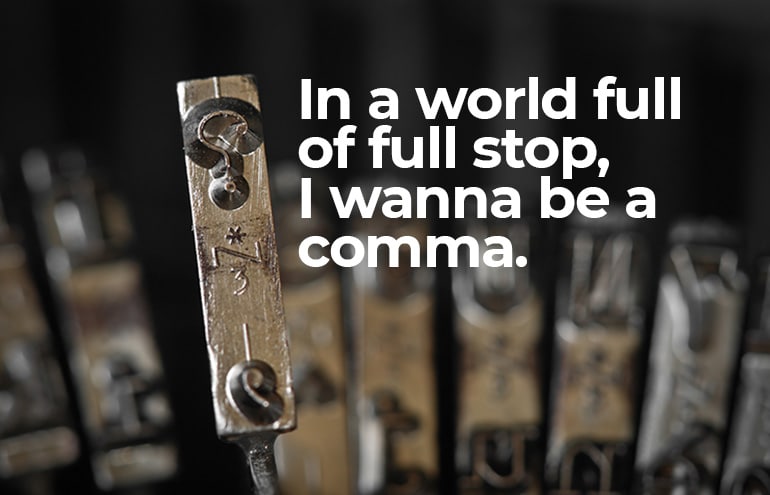Do you use the phrase “full stop”?
More than one speaker or writer starts with a premise, says or writes “full stop,” and then continues on the same theme.
If “full stop” doesn’t mean you are stopping, what the heck does it mean?

You Saw It in the Movies
From the mid-19th century until 1982, the Western Union telegram was the latest technology for the speedy transmission of written messages by Morse code or plain text via a printing telegraph machine. You probably saw depictions of the importance of the telegraph in Western movies. Movies about World War II often showed families receiving telegraph notification that their loved ones were killed in action. Not all telegrams were bad news. As telegrams became commonplace, people sent them for special occasions like weddings and birthdays.
What Does Full Stop Mean?
Sending a telegram was an expensive proposition, incurring a basic fee plus a charge per word. Understandably, senders minimized their words, sometimes producing curious word combinations. For clarification, the word “stop” was inserted at the end of a sentence.
A telegraph operator would end a telegram with the phrase “full stop” to notify the recipient to expect no further transmission.
“Full stop” means the end of the message.
Or Just the End of the Discussion
To refuse to entertain any argument on a subject, someone might say, “That’s the way it’s going to be. Period.”
In the United Kingdom, “full stop” is the name for that punctuation mark (.) at the end of a sentence.
The prevailing use of full stop has supplanted the punctuation mark.
Now people use full stop to signal the incontrovertibility of their assertions with or without anger. But the phrase is starting to simply suggest emphasis.
Here are some verbatim sample social media posts:
I love Dolly Parton. Full stop.
[Got it. No discussion wanted or necessary.]
Umm, you’re missing the point, he said he loves the poorly educated! Full Stop! They don’t realize that he’s actually looking down on them!
[If it’s full stop, why are you still writing?]
Use the Phrase This Way — or Don’t
When you are asserting your position and will brook no disagreement, declaring “full stop” is appropriate. Then don’t undercut what you just communicated by opening a discussion about it.
But using this phrase may not be the best choice.
Keeping the conversation going is valuable in reaching agreement and settling cases. When you want to convey how reasonable you are, do so without a phrase that may be seen as truculent.
This post contains some wisdom: “In a world full of full stops, I want to be a comma.”

Photo © iStockPhoto.com

Sign up for Attorney at Work’s daily practice tips newsletter here and subscribe to our podcast, Attorney at Work Today.

















